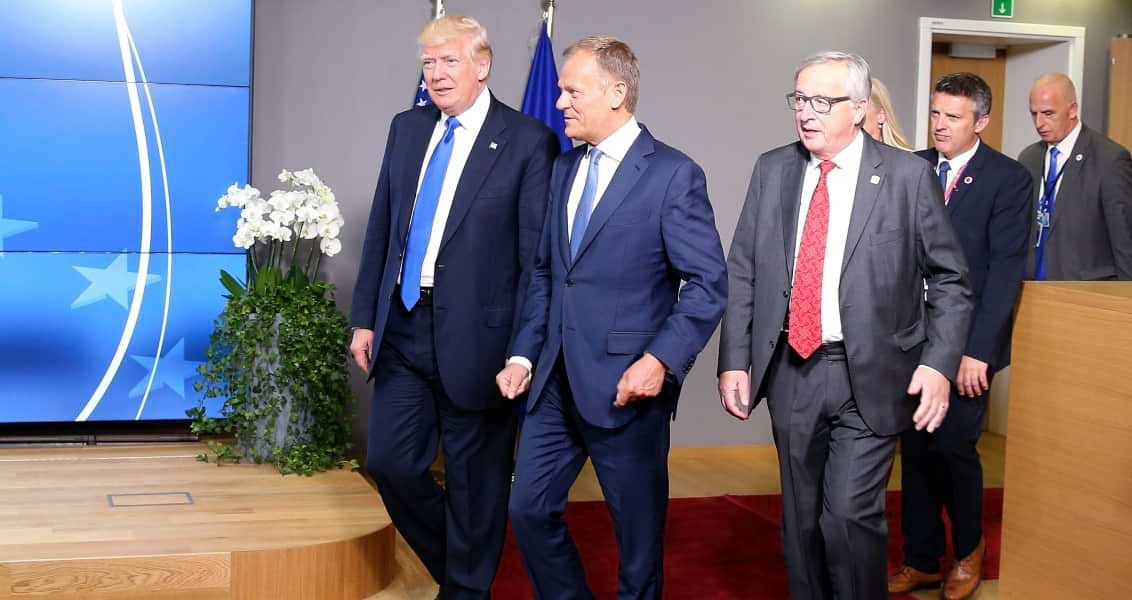
What Is Turkey's Position in the Global Turmoil?
We must find answers to a number of key questions: are the U.S. and the U.K. assuming the leadership of an emerging coalition? Is an alliance between Germany and France still feasible? Could Turkey work more closely with Italy, Spain and the U.K.?
Share
At a time when Turkey is fighting off terrorism and destabilization efforts, the country continues to try and promote economic growth, development and welfare. To be clear, Turkey's current performance is closely linked to its ability to exert influence over its region. Simply put, we cannot preserve our national security, economic growth, social peace and political stability by watching regional developments from the sidelines. Therefore, Turkey must assert its prominence on the ground by using diplomatic tools and resorting to hard power as it sees fit. The main challenge, however, is that Turkey needs to accomplish these tasks while restructuring its bureaucracy. At this point, both the Foreign Ministry, which conducts diplomacy, and the Turkish Armed Forces, which exercises hard power, must be swiftly and effectively restructured. To be clear, restructuring is inevitable if Turks care about their independence, future and stability. It is not just about verifying the Gülenist Terror Group (FETÖ) threat or taking actions against the group. Although the fight against FETÖ remains important, both institutions need to be updated and transformed to serve Turkey's needs regardless.
The modernization of both the military and the diplomatic corps is an absolute necessity for Turkey. Moving forward, we need both institutions to leave the Cold War behind, dial down the solidarity among their employees and to become involved in the regional transformation on the nation's behalf. In doing so, they must remain loyal to the political leadership and provide political leaders with up-to-date information from the ground.
It is not uncommon to hear people say that the world is changing and the game of global politics is more challenging than ever. Truly, we live in a world whose rules, institutions and precedents are not all clear. Although the West's traditional hegemony is being challenged, it has not yet been replaced by a new hegemonic order. To be clear, this is more than just a power struggle between the West and East. A power struggle continues within the West as well. As a matter of fact, there is a more fierce competition between Western nations today than at any point in recent memory.
In the power struggle between nations, instruments of asymmetrical warfare play an ever-more prominent role. For decades, terrorism was an inherently Middle Eastern phenomenon that Westerners could observe from the outside. Unfortunately, we are witnessing the globalization of terrorism today.
Moving forward, we must find answers to a number of key questions: are the U.S. and the U.K. assuming the leadership of an emerging coalition? How will Germany's eagerness to invest more in its national security and raise a military affect Turkey and the rest of Europe? Is an alliance between Germany and France still feasible? Could Turkey work more closely with Italy, Spain and the U.K.? What role will Russia play in the future of U.S.-EU relations? What does the tension between Germany and the U.S. mean for the world? What do China's plans to work with Europe against the U.S. and Washington's intentions to work more closely with Russia to disturb Europe, mean for Turkey? Could the Western advocates of isolationism really be trying to replace liberal interventionism with conservative interventionism?
If you were wondering where I stand on these issues, my answer is that sometimes it is more important to ask the right questions than to come up with quick answers.
[Daily Sabah, June 6, 2017]
Tags »
Related Articles






